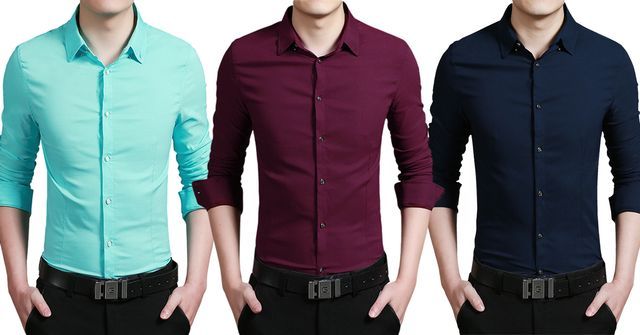When it comes to choosing the perfect shirt, fabric plays a pivotal role in determining not only its comfort but also its appearance and functionality. Whether you’re shopping for a dress shirt, a casual tee, or something in between, understanding the various shirt fabrics available is essential. In this comprehensive guide, we’ll walk you through the most common hawaiian shirt fabric types, their characteristics, and the ideal occasions to wear them.
1. Cotton
Characteristics: Cotton is the undisputed king of shirt fabrics. It’s breathable, comfortable, and absorbent, making it an excellent choice for everyday wear. Cotton shirts come in various weaves, such as poplin, oxford, and twill, each with its unique texture and characteristics.
- Poplin: Lightweight and smooth, ideal for formal dress shirts.
- Oxford: Heavier and more textured, great for casual shirts.
- Twill: Known for its diagonal weave pattern, offering a balance between casual and formal.
Occasions: Cotton shirts are incredibly versatile. You can wear them to the office, for casual outings, or even dress them up for special occasions.
2. Linen
Characteristics: Linen is perfect for hot weather. It’s lightweight, breathable, and has a distinctive textured appearance. However, it wrinkles easily, which adds to its relaxed, casual charm.
Occasions: Linen shirts are your go-to choice for summer vacations, beach trips, or any warm-weather casual events.
3. Silk
Characteristics: Silk is a luxurious fabric known for its softness and sheen. It drapes beautifully and feels incredibly comfortable against the skin.
Occasions: Reserve silk shirts for special occasions, formal events, or when you want to make a bold fashion statement.
4. Wool
Characteristics: Wool shirts come in various weights, from lightweight merino wool to heavier flannel. They are warm, breathable, and moisture-wicking.
- Merino Wool: Lightweight and ideal for layering or as a base layer.
- Flannel: Heavier and perfect for cold weather.
Occasions: Wool shirts are best suited for cold-weather activities, whether you’re hitting the slopes or simply strolling in the city during winter.
5. Polyester
Characteristics: Polyester is a synthetic fabric known for its durability, wrinkle-resistance, and quick-drying properties. However, it may not be as breathable as natural fabrics.
Occasions: Polyester shirts are often used for athletic and outdoor activities, thanks to their moisture-wicking and quick-drying abilities. They can also work well in casual settings.
6. Blend Fabrics
Characteristics: Blend fabrics combine two or more materials to create shirts with unique properties. Common blends include cotton-polyester, cotton-linen, and wool-cotton.
- Cotton-Polyester: Combines the comfort of cotton with the durability of polyester.
- Cotton-Linen: Blends breathability with a casual, textured appearance.
- Wool-Cotton: Offers warmth and softness with a touch of breathability.
Occasions: Blend fabrics provide a balance between the characteristics of their constituent materials, making them versatile choices for various occasions.
7. Denim
Characteristics: Denim, known for its ruggedness and durability, is most commonly associated with jeans. However, denim shirts have become a fashionable choice for casual wear.
Occasions: Denim shirts are perfect for relaxed, casual outings or as a layering piece in colder weather.
8. Chambray
Characteristics: Chambray closely resembles denim but is lighter and softer. It often features a plain weave, making it comfortable and versatile.
Occasions: Chambray shirts are suitable for both casual and semi-formal occasions, offering a stylish alternative to traditional cotton dress shirts.
In conclusion, the choice of shirt fabric should align with the occasion, weather, and personal style. By understanding the characteristics of different shirt fabrics, you can make informed decisions when shopping for your wardrobe. Whether you’re looking for comfort, style, or functionality, there’s a shirt fabric out there that’s perfect for you. So, the next time you’re in the market for a new shirt, consider the fabric as one of the key factors in your decision-making process.
